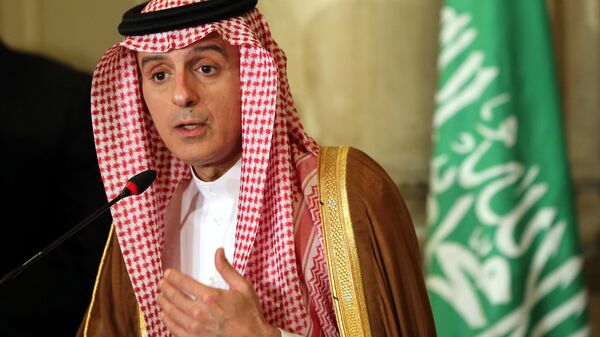"Everybody is trying to avoid war in the region. War would be dangerous for everyone. However, the escalation has always come from the Iranian side. Iran attacked tankers in the Gulf, not once but twice. Iran sent ballistic missiles and drones through its proxies the Houthis against Saudi Arabia’s oil pipeline and the Saudi airport", al-Jubeir told France 24.
The minister stressed that it was up to Iran to de-escalate as it had been engaged "in aggressive behavior and threatening moves".
Tensions between the United States and Iran escalated a year after Washington pulled out of the landmark 2015 Iran nuclear deal and reimposed sanctions on the nation. It deteriorated further when US authorities hit key areas of the Iranian economy with tough restrictions in order to “change the behavior” of the Islamic republic. The US also declared the Iranian Islamic Revolutionary Guard Corps (IRGC) a terrorist organization, to which Iran responded by recognizing the US Central Command as a terrorist group and the United States as a "state sponsor of terrorism".
Earlier in the month, the US boosted its military presence in the Persian Gulf in what US National Security Adviser John Bolton said was "a clear and unmistakable signal to the Iranian regime that any attack on the interests of the United States or [its] allies will be met with ruthless force".
Tensions rose further after Washington accused Tehran of attacking oil tankers in the Gulf of Oman, an allegation the Islamic republic had strongly denied.
On Thursday, Iran downed a US military surveillance drone, with Washington saying it was shot down in international airspace. Tehran detailed that the unmanned vehicle was over Iranian territory.
US President Donald Trump said Friday that he stopped a retaliatory military action against Iran.
Iranian Foreign Minister Javad Zarif said Sunday that Trump was "moments away" from being dragged into a war with Iran.
"B Team was moments away from trapping Donald Trump into a war. Prudence prevented it, but Economic Terrorism brings tension", Zarif tweeted.
Zarif has repeatedly accused Trump appointee Bolton, as well as the Israeli prime minister and the Saudi and Emirati crown princes — so-called B Team — of plotting against Iran.
The US president acknowledged in an interview with NBC on Sunday that Bolton was a "hawk" who would "take on the whole world at one time" if he had a chance, but he denied being pushed into a war with Iran, stressing that “I’m not looking for war [...] And if there is, it’ll be obliteration like you’ve never seen before. But I’m not looking to do that".
Iranian Supreme Leader Ayatollah Ali Khamenei said that Iran does not intend to wage war with the United States, but will continue to resist Washington.
Meanwhile, US Secretary of State Mike Pompeo departed Sunday for Saudi Arabia and the United Arab Emirates to establish what he described as a 'global coalition' against Iran while Washington is expected to impose new "major" sanctions against Tehran on Monday.


